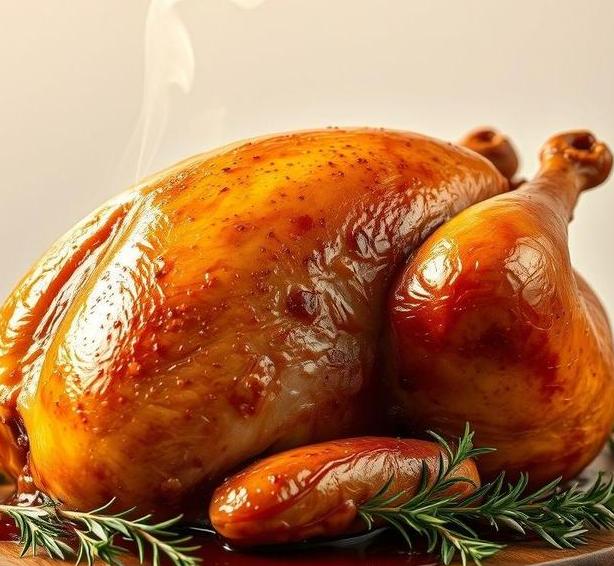Turkey, whether it’s the star of your holiday feast or a meal prepped for the week, is a versatile and beloved protein. However, when it comes to buying fresh turkey, there are a lot of questions that arise about how long it lasts, how to store it, and how to tell when it’s no longer safe to eat. After all, fresh meat is highly perishable, and the last thing you want is to end up with a spoiled bird that could make you sick.
In this detailed guide, we’re going to walk you through everything you need to know about the shelf life of fresh turkey, common spoilage signs to watch out for, and expert storage tips that can help you maximize its freshness. Whether you’re a seasoned cook or just getting into preparing turkey, this info will ensure you get the most out of your bird without risking food safety.
Can Fresh Turkey Go Bad?
Yes, fresh turkey can absolutely go bad. Just like any other fresh poultry, turkey is highly perishable, meaning it can spoil relatively quickly if not stored or handled correctly. Spoiled turkey can harbor harmful bacteria, such as Salmonella or Campylobacter, which can lead to food poisoning if consumed.
Fresh turkey can go bad because:
- Bacterial Growth: At temperatures above 40°F (4°C), bacteria multiply rapidly. The longer fresh turkey is left in the “danger zone” (between 40°F and 140°F), the faster it will spoil.
- Improper Storage: If the turkey is not properly sealed or is left exposed to air or moisture, it can start to deteriorate, develop an unpleasant odor, or become slimy.
- Time: Even in the fridge, turkey has a limited shelf life. Keeping it too long, even under ideal conditions, will lead to spoilage.
Knowing when your turkey has gone bad can be tricky, but with a few key guidelines, you’ll be able to spot signs of spoilage and avoid the risk of foodborne illness.
Shelf Life For Fresh Turkey

The shelf life of fresh turkey depends on various factors like storage conditions, the freshness when purchased, and whether the turkey was previously frozen. However, as a general rule of thumb, here’s how long you can expect fresh turkey to last:
- In the Refrigerator: Fresh turkey typically lasts 1 to 2 days in the fridge at or below 40°F (4°C). If you’ve just purchased it and aren’t planning to cook it right away, you’ll need to use it within this timeframe to avoid bacterial growth and spoilage.
- In the Freezer: If you’re not going to use the turkey within 1-2 days, freezing is the best option. When properly wrapped in airtight packaging (like freezer bags or plastic wrap), fresh turkey can be frozen for up to 1 year. However, for best quality, it’s recommended to use it within 6 months of freezing.
- Unopened vs. Opened: If your fresh turkey is still in its original, unopened packaging, it will generally last a little longer than if it’s been opened and exposed to air. The key here is sealing it properly to minimize exposure to bacteria.
Common Signs Of Spoilage
It’s essential to be able to recognize when your fresh turkey has gone bad. Below are the key spoilage signs to look out for:
- Unpleasant Odor: The most obvious sign of spoiled turkey is an off-putting, sour smell. Fresh turkey should have a clean, mild odor, but if it has a rancid or rotten scent, it’s time to toss it.
- Discoloration: Fresh turkey typically has a pale, pinkish hue. If you notice it turning grayish, greenish, or any other unusual color, this is a clear sign of spoilage.
- Slimy or Sticky Texture: Turkey meat should feel moist but not slimy or sticky. If you notice a tacky, slippery coating on the surface, bacteria has likely taken hold.
- Drying Out: While turkey should be moist, it shouldn’t be dried out to the point where it’s tough or brittle. If the meat feels excessively dry and tough, especially around the edges, it may have started to spoil.
- Sticky Packaging: If the packaging is wet or has excess moisture inside, it may indicate that the turkey is starting to break down. The more moisture, the higher the likelihood that bacteria is growing.
How To Store Fresh Turkey?

Storing fresh turkey properly is critical to keeping it safe and extending its shelf life. Here’s how you should store it at different stages:
-
In The Refrigerator
- Keep It Cold: Always store fresh turkey in the coldest part of your fridge, typically on the bottom shelf, where it is less likely to be affected by temperature fluctuations.
- Use a Tray or Dish: Place the turkey on a tray or dish to catch any liquids that might leak from the packaging. This helps avoid contamination of other foods.
- Don’t Leave It Exposed: If the turkey is in open packaging, transfer it to an airtight container or reseal the original packaging with plastic wrap or a zip-lock bag.
- Avoid Storing Near Other Meats: To reduce cross-contamination, store turkey separately from other types of meat, especially cooked meats.
-
In The Freezer
- Wrap It Tight: If you’re freezing the turkey, wrap it tightly in plastic wrap, aluminum foil, or a vacuum-sealed bag. Ensure there is no air in the packaging, as exposure to air can cause freezer burn.
- Label It: Always label the turkey with the date it was frozen, so you know exactly how long it’s been in the freezer.
- Whole vs. Cut Up: A whole turkey will take longer to freeze and thaw than smaller portions. If you plan to freeze it for a longer time, consider breaking it down into pieces for more efficient storage.
-
Thawing Frozen Turkey
- The safest way to thaw a frozen turkey is in the refrigerator. Allow 24 hours of thawing time for every 4-5 pounds of turkey.
- For quicker thawing, you can use the cold-water method, but it requires more attention. Keep the turkey in its original packaging, submerge it in cold water, and change the water every 30 minutes. Once thawed, cook immediately.
Expert Tips
- Cook Within 2 Days: After purchasing fresh turkey, aim to cook it within 2 days to ensure you’re consuming it at its best. If you need more time, freezing is your best option.
- Don’t Leave It Out Too Long: Never leave fresh turkey out at room temperature for more than 2 hours (or 1 hour if the temperature is above 90°F/32°C). Bacteria grow rapidly between 40°F and 140°F, so it’s important to keep the bird cold until you’re ready to cook it.
- Marinate Safely: If you plan to marinate your turkey, always do so in the fridge and never at room temperature. Marinating at room temperature can encourage bacterial growth.
- Check the Date: Always check the sell-by or use-by date on the packaging when purchasing fresh turkey. Fresh turkey is most reliable when consumed close to this date.
FAQs
How Long Can Fresh Turkey Be Stored In The Fridge Before Going Bad?
Fresh turkey can typically be stored in the refrigerator for 1-2 days before it begins to spoil. It is essential to keep the turkey at or below 40°F (4°C) to prevent bacterial growth.
How Can You Tell If Fresh Turkey Has Gone Bad?
Signs that fresh turkey has gone bad include a sour or unpleasant odor, slimy or sticky texture, and discoloration, such as grayish or greenish skin. If the turkey shows any of these signs, it should be discarded.
Can Fresh Turkey Go Bad If It’s Been Left Out At Room Temperature?
Yes, fresh turkey can go bad if left at room temperature for more than two hours. Bacteria grow rapidly at temperatures between 40°F and 140°F, so it’s important to refrigerate turkey promptly.
Is It Safe To Cook Fresh Turkey After It Has Been In The Fridge For 3 Days?
It is not recommended to cook fresh turkey after it has been stored in the fridge for more than 2 days. After 3 days, the turkey may have started to spoil, posing a risk of foodborne illness.
Can Fresh Turkey Be Frozen To Prevent It From Going Bad?
Yes, fresh turkey can be frozen to extend its shelf life. When properly wrapped and stored in an airtight container or freezer bag, it can last up to 1 year in the freezer.
What Should I Do If My Fresh Turkey Smells Bad?
If your fresh turkey smells off or sour, it is likely spoiled and should not be cooked or consumed. Dispose of it immediately to avoid foodborne illnesses.
Does Fresh Turkey Go Bad Faster Than Frozen Turkey?
Yes, fresh turkey spoils faster than frozen turkey. Fresh turkey should be consumed within 1-2 days when refrigerated, whereas frozen turkey can last up to a year in the freezer.
Can Fresh Turkey Go Bad Even If It’s Within The Use-by Date?
Yes, even if the fresh turkey is within its use-by date, it can still go bad if not stored correctly or if the packaging has been compromised. Always check for signs of spoilage, such as off smells or discoloration.
Can Fresh Turkey Go Bad If It Is Thawed In The Fridge?
If fresh turkey is thawed properly in the fridge, it should be safe for 1-2 days. However, if it’s thawed outside of the fridge, or if it exceeds the recommended time, the turkey can go bad quickly.
What Temperature Should Fresh Turkey Be Kept At To Avoid It Going Bad?
Fresh turkey should be stored at a temperature of 40°F (4°C) or below to prevent bacterial growth and spoilage. Make sure your fridge is set to the correct temperature for safe storage.